Defining social enterprise - a perspective
My accountant told me the other day that my social conscience and philanthropic intentions sometimes get in the way of smart business. I didn’t like hearing that. Not one bit. My initial reaction was to find a new accountant, but then I recognised he is one to keep on my team because:
- He will help me be smarter in business
- I can prove to him that it is possible to combine a social conscience with smart business.
This is my goal, but it’s not an easy one. Navigating the social enterprise space as it is currently termed is as confusing as it is exciting. Exhausting as it is energising. Defeating as it is empowering.
But I have no doubt in my mind that it is the essential approach to business moving forward towards a sustainable, just and kind planet. Others agree with me and we must never ever give up.
When “smart” business overrides social conscience, I think we have a problem. In fact it is perhaps the very reason our planet is in dire trouble. Until now, many business leaders have placed profit ahead of ethical conscience - to the ultimate demise of habitat, communities, species and sanity.
We need to do it differently.
While I am still working out the how on this one in my business, I know I am not alone. The social enterprise community is growing rapidly in Australia. Through One 10, the Ethical Enterprise community, the Jane Goodall Institute, Social Traders, B Corporation and XFactor Strategic Development, I have had the opportunity to find my tribe of people (most of whom are half my age) who truly “get it”. This inspires me and gives me hope, and fuels my determination to keep working on this process until we develop solutions that sustain us into the future, for the future of these young entrepreneurs and their children.
I have had the honour of connecting with and being totally inspired by people such as Dr Jane Goodall, (who is the voice in my head), Geoff Gourley and Veronica Munro (One 10), Prashan Paramanathan from Chuffed, Ashleigh Wall from Harwood Andrews, Cassie Dewar from Inspirationery, Jamie Green from One Night Stand, Peta Granger from LUSH, Paul Smith from Future Directors, and the Thankyou Team. I made a point of introducing myself, albeit briefly, to Simon Griffiths from Who Gives a Crap and Roslyn Campbell from Tsuno at an ethical expo in Melbourne. I love hearing the stories behind ethical enterprise. They are always inspiring, heartfelt and authentic. Each founder has a personal story that led them to their venture.
The growth in the “social enterprise” movement inevitably brings with it questions, curiosity, challenge, intrigue, mistrust, competition, questionable egos and threat. The spectrum of “grey areas” becomes increasingly confronting and apparent as this sector seeks to define and ground itself. It is a can of worms in so many ways, and one that we are working our way through steadfastly.
I would be as bold to say that some “conservatives and traditionalists” who are used to running businesses and Not-For-Profits (NFPs) differently feel threatened by the social enterprise movement. I have found that social enterprises are often parked in the not-for-profit space by these conservatives. This also needs to change.
We all know that there are way too many NFPs in our country. According to the JB WERE Cause Report, there is one NFP per 422 people. No wonder so many are struggling to secure funding for survival. The begging mentality and funding processes associated with NFPs is also limiting. Yes, NFPs need to consider social enterprise for financial sustainability, but businesses do not need to become NFPs to be a social enterprise. We can make and share our profit with a clear mission towards creating social and ethical change. Through smart business endeavours we can shift this paradigm and create socially conscious corporates that invest in a better future.
This blog is a guest post contribution by:
Dr Alicia Kennedy BSc BVMS
Alicia is a Veterinarian and Founder of a unique social veterinary enterprise that is on a mission to support companion pet ownership in vulnerable people. Cherished Pets Community Veterinary Care is a social benefit company that provides in home veterinary and pet care services and has designed a groundbreaking animal health program tailored for elderly and disabled pet owners who are still living independently. The business exists to support its registered charity, Cherished Pets Foundation (CPF) through pro and low bono services and sharing 50% of its profit. CPF operates a community pet care project that matches volunteers with eligible clients for additional home pet care support, as well as providing respite care and a discretionary vet fund. Cherished Pets has recently been recognised with the 2016 Geelong Business Excellence Corporate Social Responsibility Award. Alicia is also a Founding Director of the Jane Goodall Institute – Australia.
alicia@cherishedpetcare.com.au | www.cherishedpetcare.com.au
Facebook | Instagram @cherishedpets
Twitter @akennedyvet











Globally, innovation is recognised as a key pathway to productivity, sustainability and effectiveness in both the public and private sectors. In order for Australia to remain internationally competitive, all areas of the economy need to be actively involved in innovation.